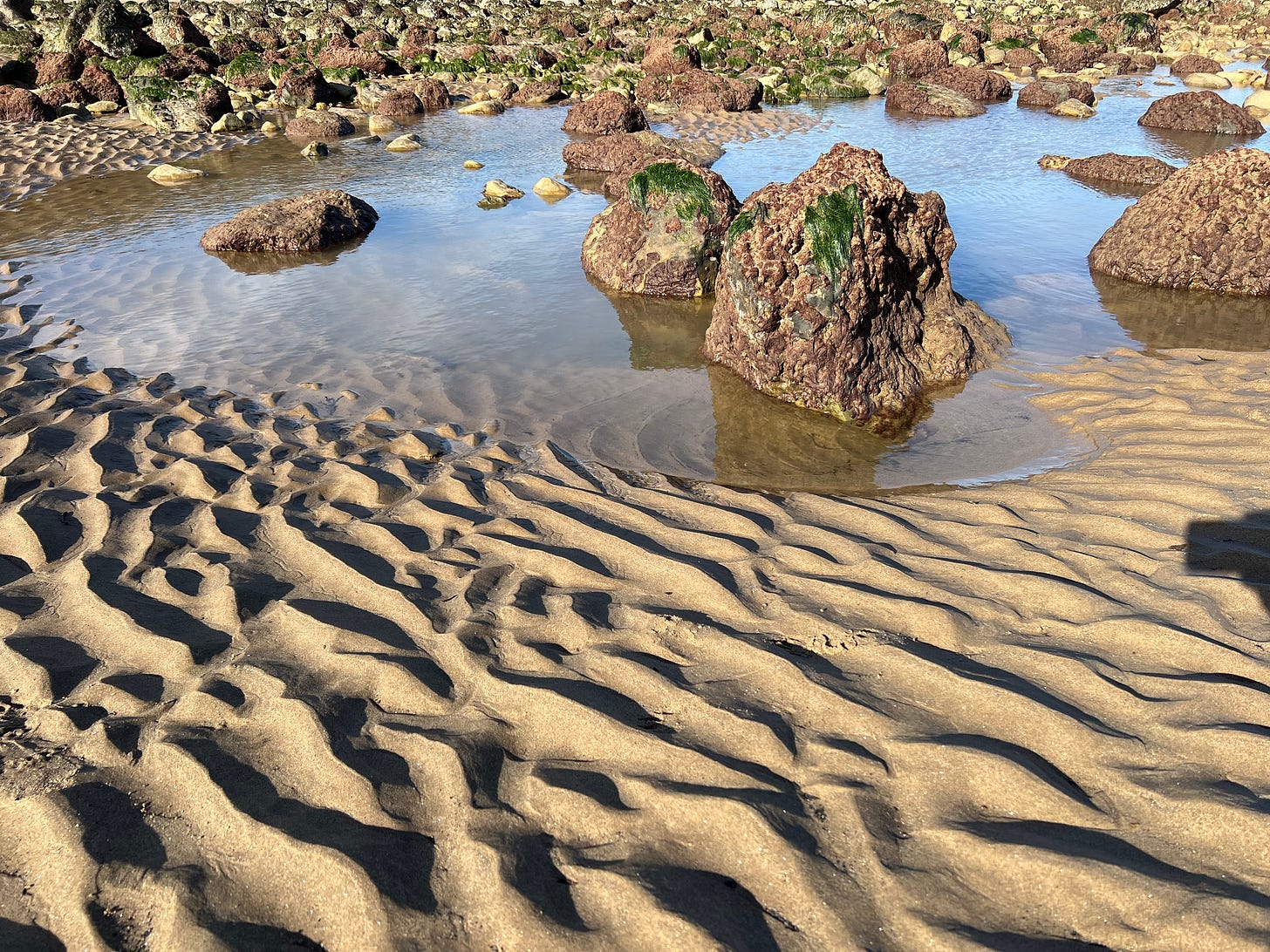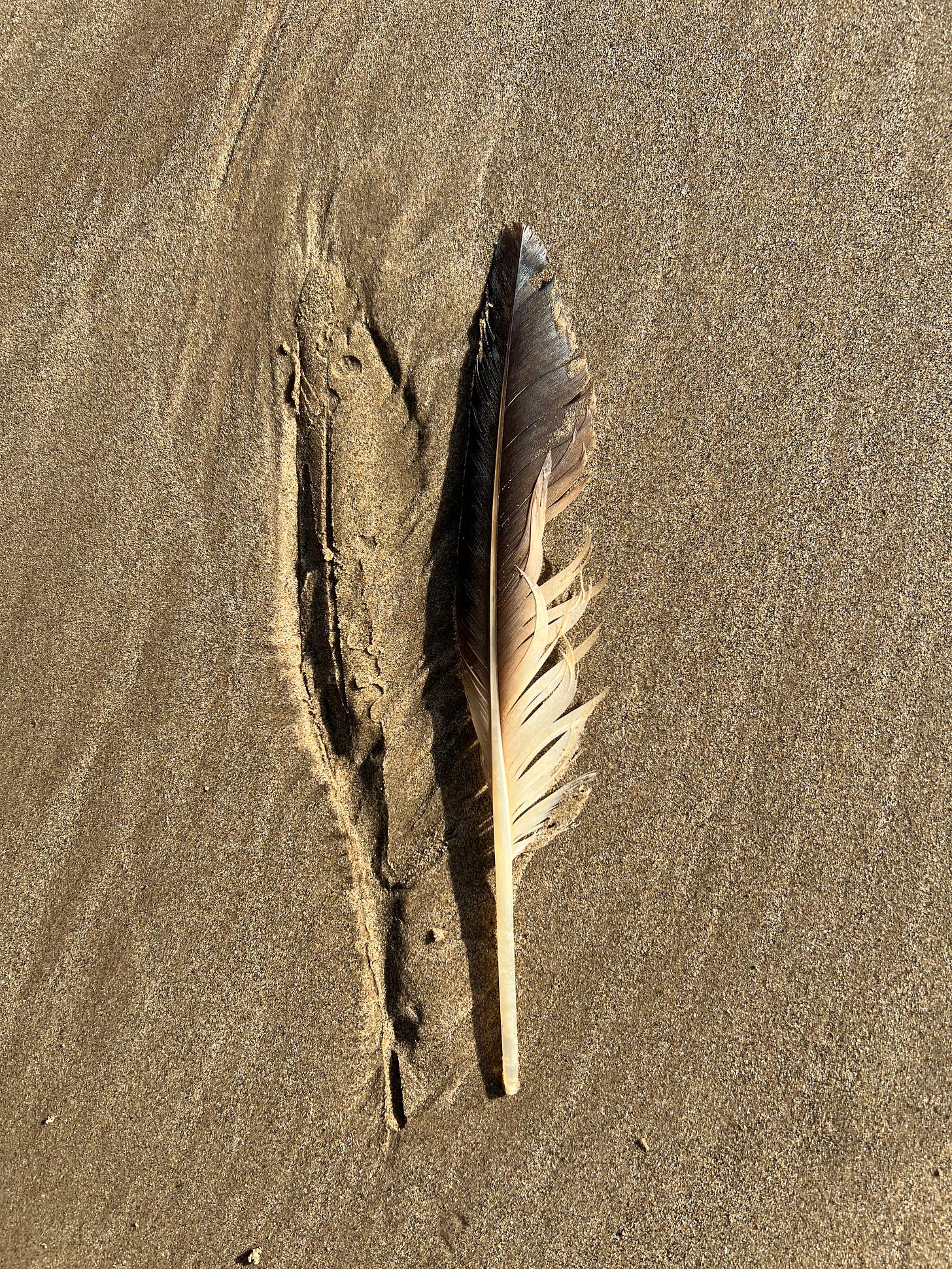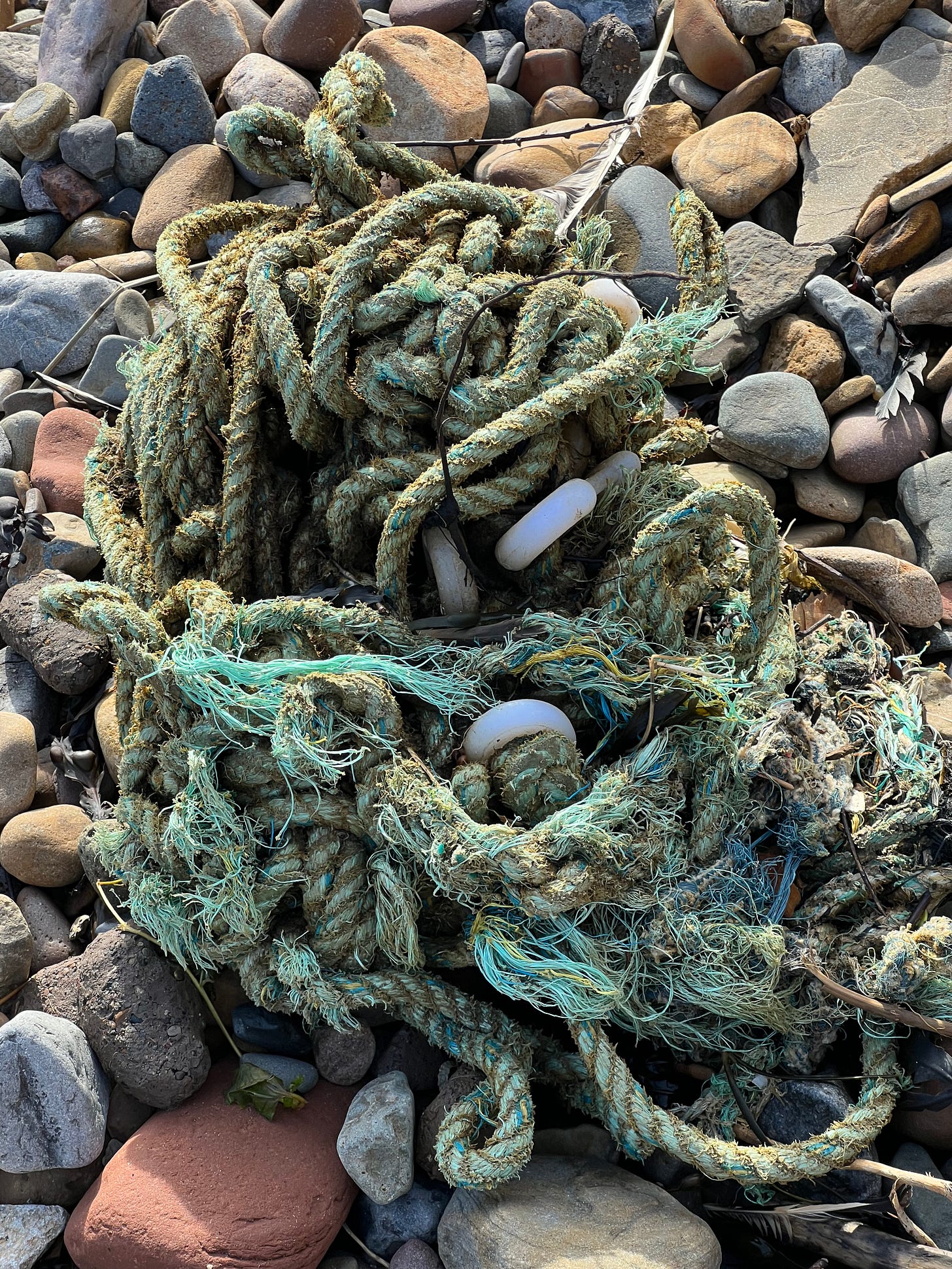Concealment of Birth, 1846
I’ve been thinking lately about what makes a ‘found’ poem. I wrote this little blog article for the Nine Arches Press website on a found poem from my new collection, Blackbird Singing at Dusk. The poem is called Concealment of Birth, 1846. I’m hoping the formatting works on substack.
Concealment of Birth, 1846
the prisoner is walking
walking in the field
on the cliffs the prisoner is
walking walking
in the field the prisoner
walked into the barn
into the field
into the field
into the field
under the hedge the prisoner is on the ground
under the bush
the prisoner is warm weather
the prisoner is broad leaves
the prisoner is grass unclean
the prisoner is guilty
into the field
into the workhouse
(A found poem from The Morning Post 18th July 1846)
You can read lots of really interesting short blog pieces on how poets have written their poems on the Nine Arches blog, here:
'Concealment of Birth' is a found poem. A found poem is a poem that is composed using text already in existence. One of the things I wanted to do with Blackbird Singing at Dusk was to look for the female experience of the working-class rural life. While I was researching, I came across a story in a very old newspaper about a pregnant woman from the area I live in, who had secretly crept out to the fields when she went into labour and delivered her baby either under a hedge or in a barn, attempting to abandon it there. It was a heart-breaking story. Despite being in such a rural area, she had been seen and watched and reported to the police. The baby was rescued. After I read the story, I found myself watching the fields when I went walking, imagining what it must have been like to lie beneath a hawthorn hedge and push a baby into the world with no friend, no reassurance. I wanted to tell the story, but I wanted to frame the story in a way that highlighted the rural aspect; that this woman had chosen to labour in the fields, to leave her baby there for whatever reasons, rather than leave it in a workhouse or police station. I went through the article initially collecting all references to what we might think of as the countryside – hedges, fields, barns, and of the woman in motion, existing within the rural. I wanted to capture the terrible pacing about looking for a safe place to give birth, but I also wanted to capture the draw to nature by someone who lives rurally. Of course, this imagined draw to nature was my own speculation, and perhaps says something about me and the way I am drawn to nature. I tried to line the images of this woman in motion up alongside how the woman might have been feeling. She is referred to in the article only as ‘the prisoner’. Perhaps she already felt a prisoner of her body.
Removed from context the lines take on a meaning of their own, a repetition emerges, and the poem becomes separate to the original newspaper report; such is the joy of found poetry. In real life the woman was taken to the workhouse, and in my poem she is too, but I left the poem open ended, without a full stop, without closure, in case she might like to escape back to the wild.
Beach Walk as Found Poem
I find myself connected to the physical land around me through the interface of my body, and that gives me the same thrill as being connected to the fast, organic rush of writing a poem. Perhaps they are the same thing.
Arriving
Cayton Bay, a mid October afternoon. The curve of the clay banks, rivulets of water finding home. Crows on the updrafts. Trees walking into the sea slowly becoming denuded of leaves, of life.
Cayton bay in the off season months, the bay like two hands cupped for a dog to drink water from, for the bobble hatted people walking, for the skim and skitter of sand on the wind.
The threat of rocks falling.
The grounding of focus; on feet, on stones, on branches, on birds, on the constant hush of the water on the sand. Always the mind like a machine pulling you back and back and back.
Fingers//fossil
X ray of a bivalve
bones beneath bones
If I was the memory of myself I too would be beautifully rippled and surprisingly rigid holding boot prints holding the movement of waves holding the dark places where the sun can't reach sometime I hold creatures in small safety until their landscape changes for the better
Label one: a cast of a movement completed Label two: the movement of an unseen force, in this case the wind, held in the delicate ripples on the sand. Label three: the cast dark of the sun pushing hard against a physical object.
It is almost impossible to comprehend how something as delicate as a feather can leave an impression on the earth however fleeting
There are lives here that I will never know: the hand that cut the tangle free the fish that witnessed its descent the people walking past on the beach where it is washed up in blues and greens. It is too heavy to remove. I leave it where it is and worry about its dangers for days afterwards. I become a part of its story.
Writing Prompt
Go and find your found poem/grounding/landscape connection.

Up Coming Notes from the Margin Events for Paid Subscribers
The next Notes from the Margin online course will be in January, I’ll have details for you about that soon, but in the mean time, alongside paywalled essays that only paid subscribers have access to, there will be some zoom gatherings:
Thursday 21st November 12.30 - 1.30pm UK Time - Lunchtime write-along. Join me on zoom for an hour of communal writing. We’ll begin with a reading, an optional prompt and then we’ll settle down to some writing in the zoom room. Feel free to bring along a long term project, or use the space in another creative way. This is a place to be creative together, a gentle accountability to your creative self. If you are a paid subscriber to Notes from the Margin, you don’t need to do anything, your zoom link will appear in a paywalled substack post just before the event.
Thursday 28th November 6 - 7pm UK time - Exclusive paid subscriber launch party for my new collection Blackbird Singing at Dusk. Join me on zoom to celebrate the launch of my new poetry collection. I’ll be reading from, and chatting about, the collection and the process behind writing it. This is my chance to celebrate with you, the people who support my writing. Feel free to ask me anything about the book, the publishing process, how the industry works etc.
Thursday December 12th 12.30-1.30pm UK time - Lunchtime write-along.Join me on zoom for an hour of communal writing. We’ll begin with a reading, an optional prompt and then we’ll settle down to some writing in the zoom room. Feel free to bring along a long term project, or use the space in another creative way. This is a place to be creative together, a gentle accountability to your creative self. If you are a paid subscriber to Notes from the Margin, you don’t need to do anything, your zoom link will appear in a paywalled substack post just before the event.
Until next time
x










Oops! Typo. I didn’t really move a whale 600 metres. I moved a whole 600metres, along the seafront. I can swim 600 metres though. #wildswimmer
I too live on the shore and am inspired by the sea and everything at the edge of it. I loved your poems. We recently moved a whale 600 metres, a sidewards slide along the seafront. I couldn’t bear to move any further away.
Your first poem was so moving. Our lives, however, much we complain are not nearly as tough as those slaves. Reading your poem reminds me to be grateful.
The rest of your poems were about the things I am so familiar with, the worm casts etc. Have you noticed the popping sound as the waves recede and all those little air holes in the sand open up again. What hides there? I have written a poem about that and it was made into a film poem. (Reminder to self… share this.)
I look forward to more of your post.
Warm wishes.